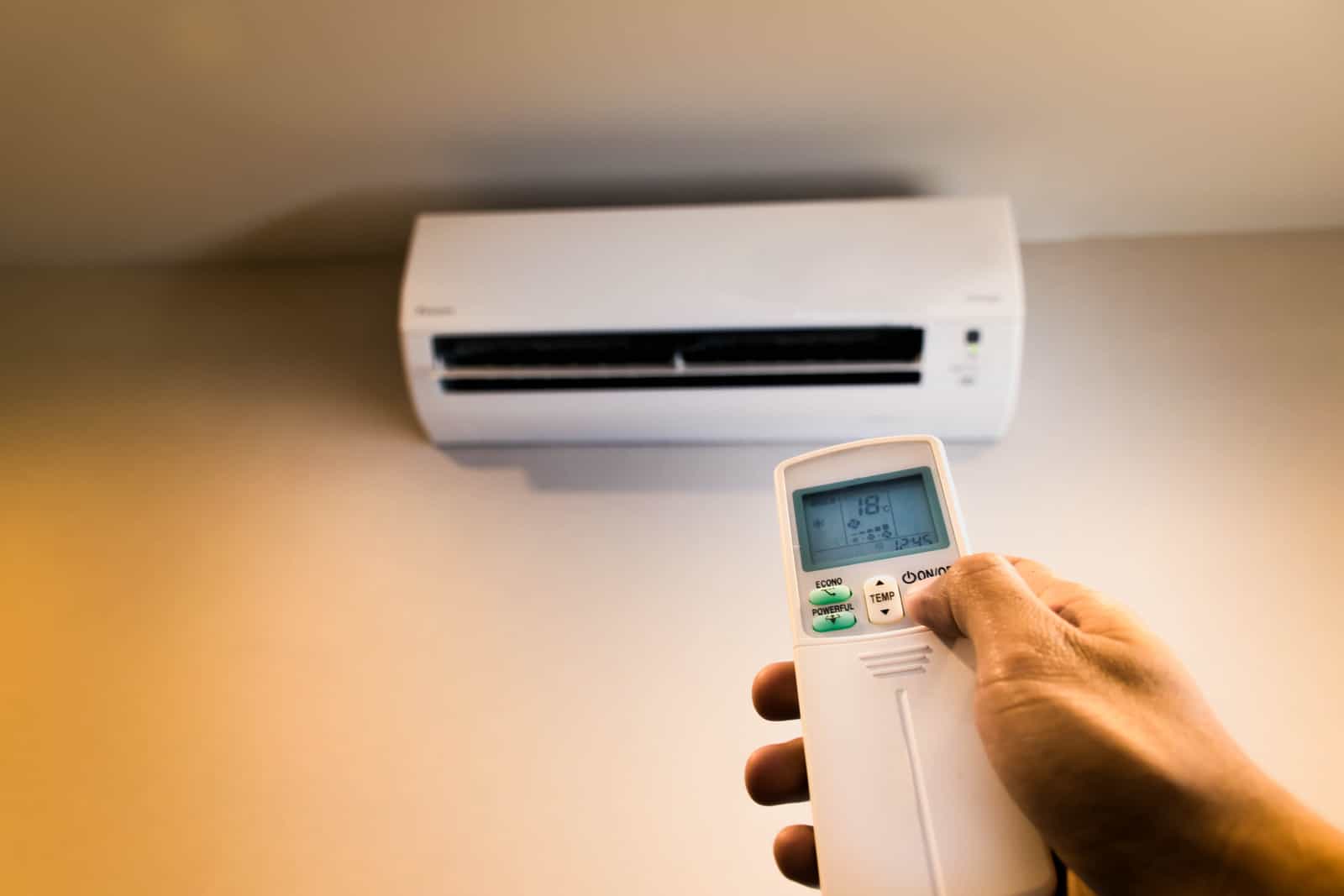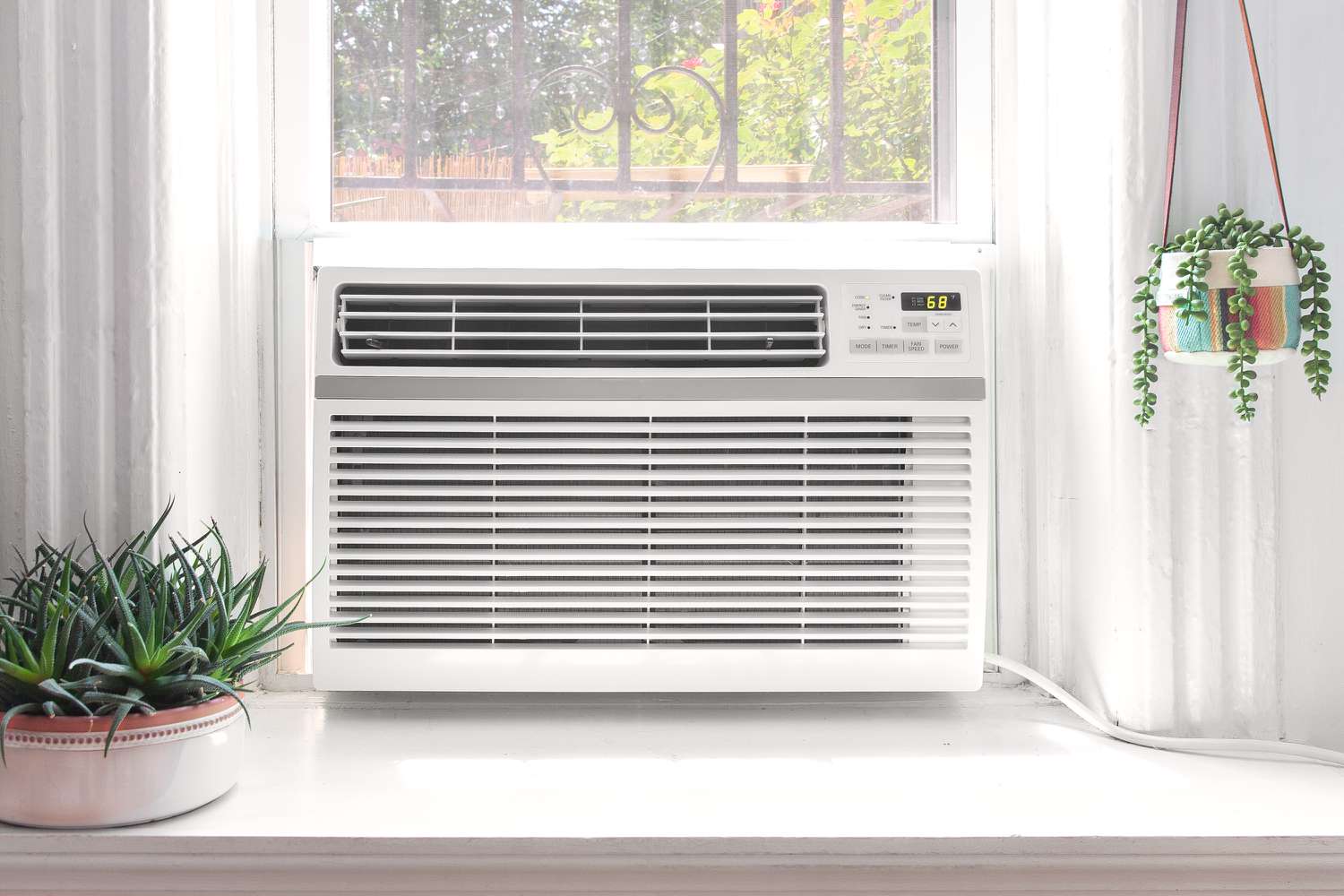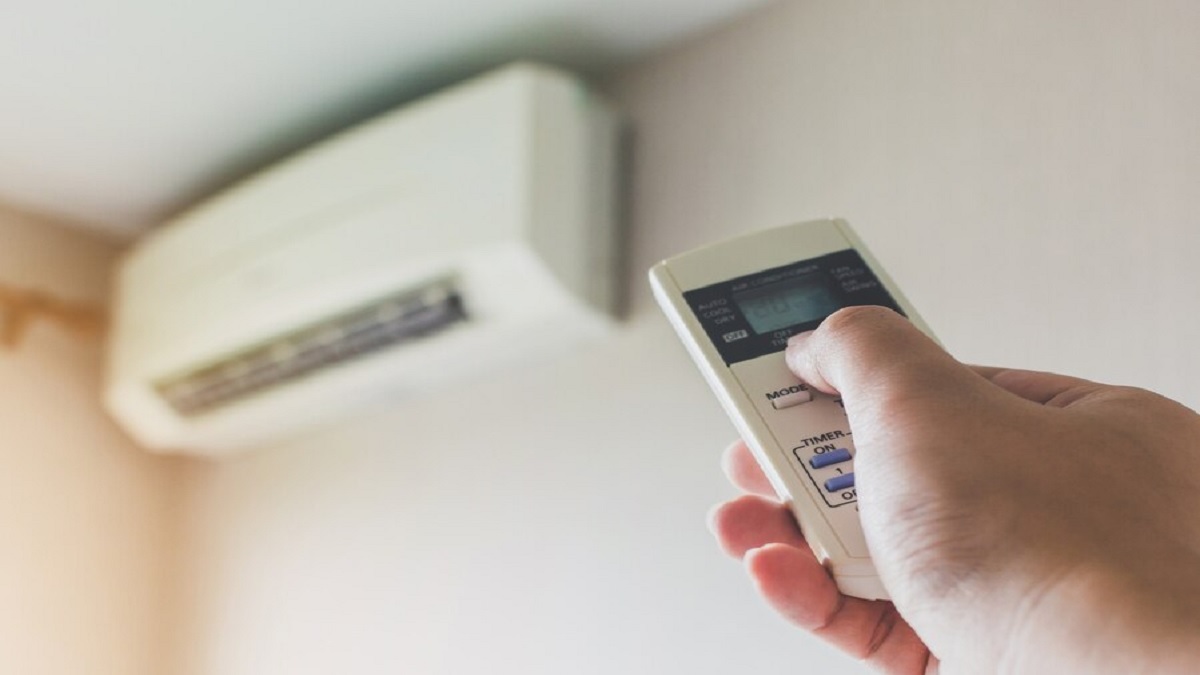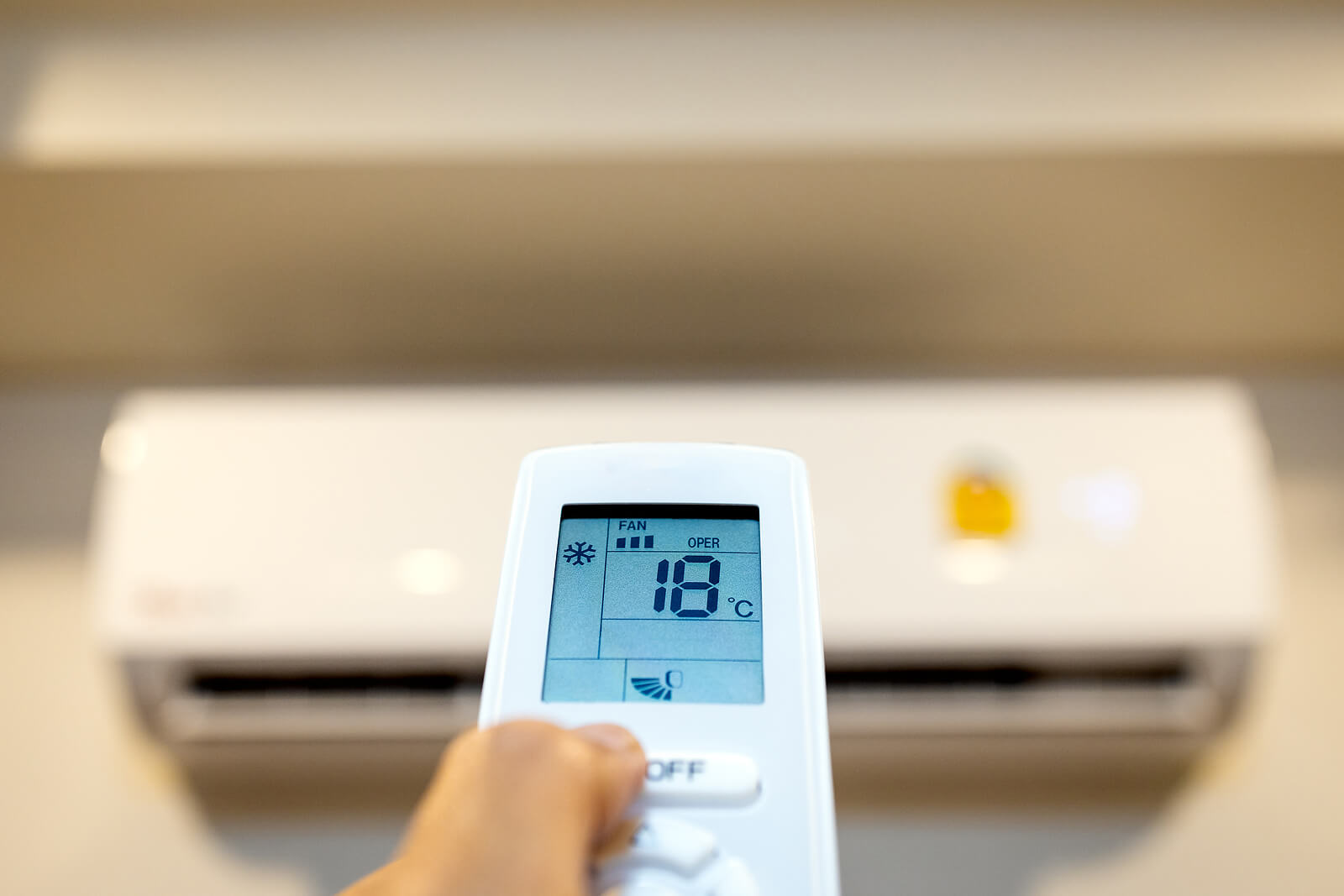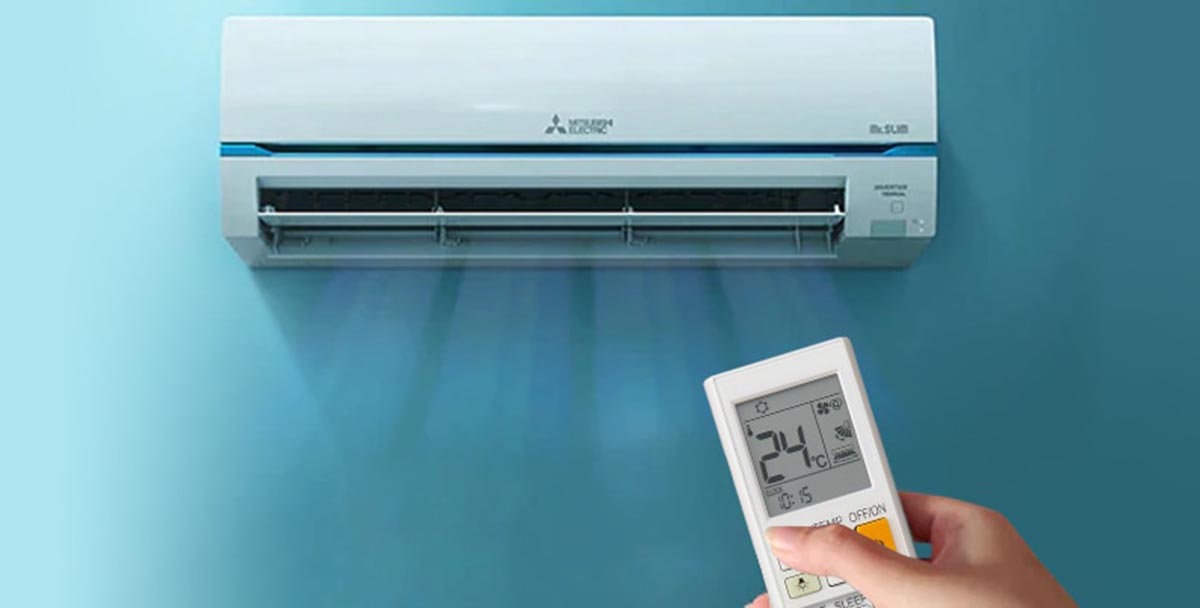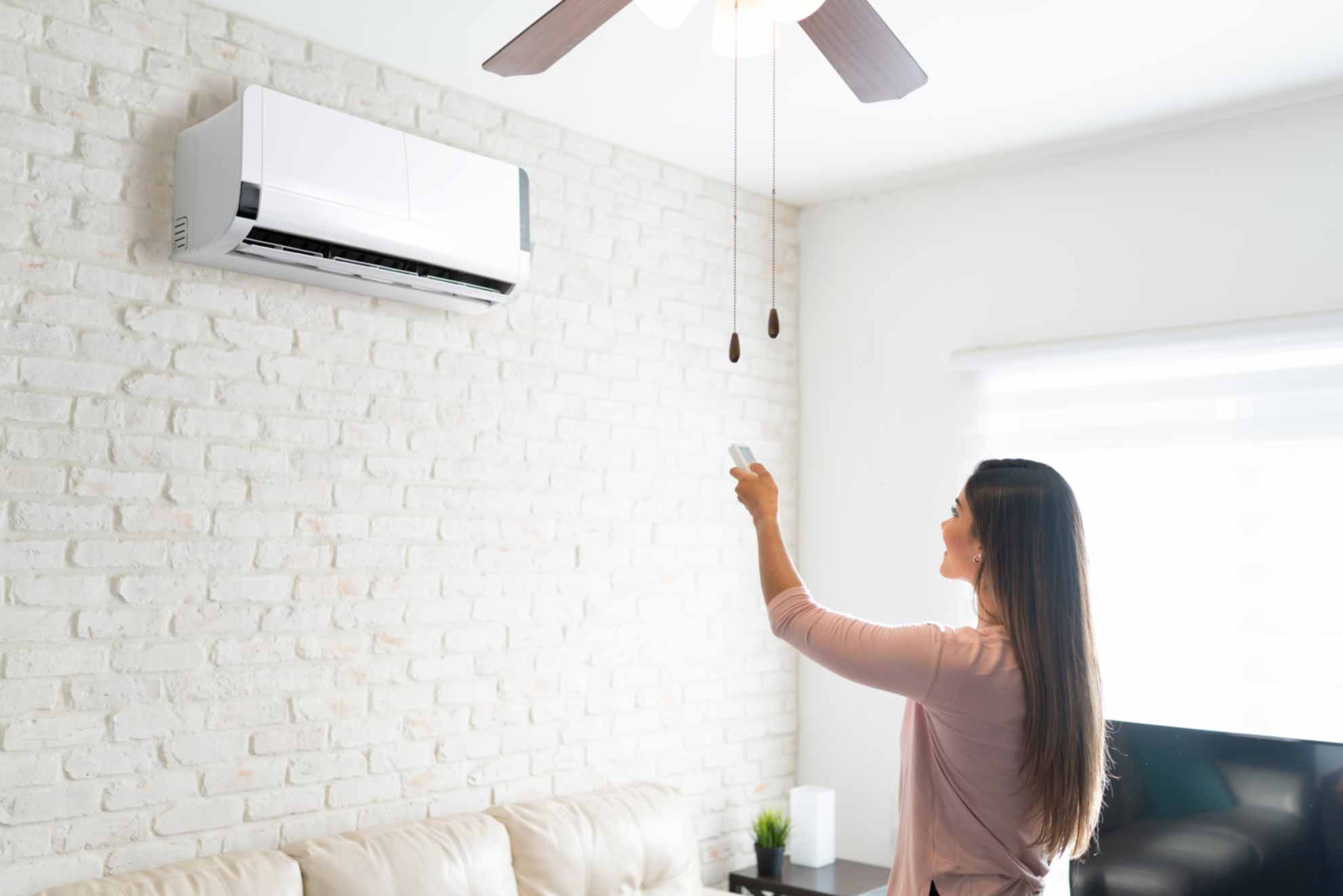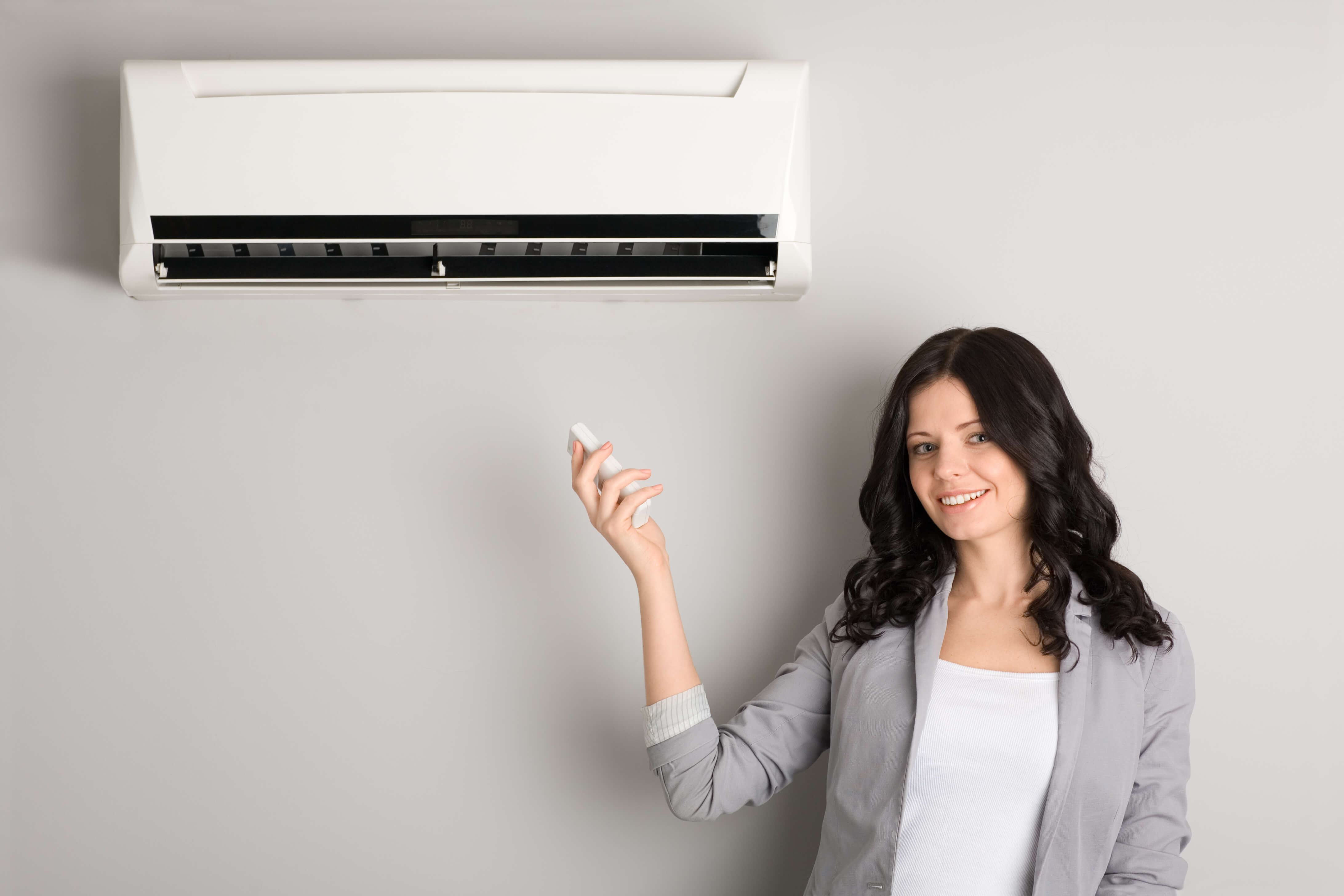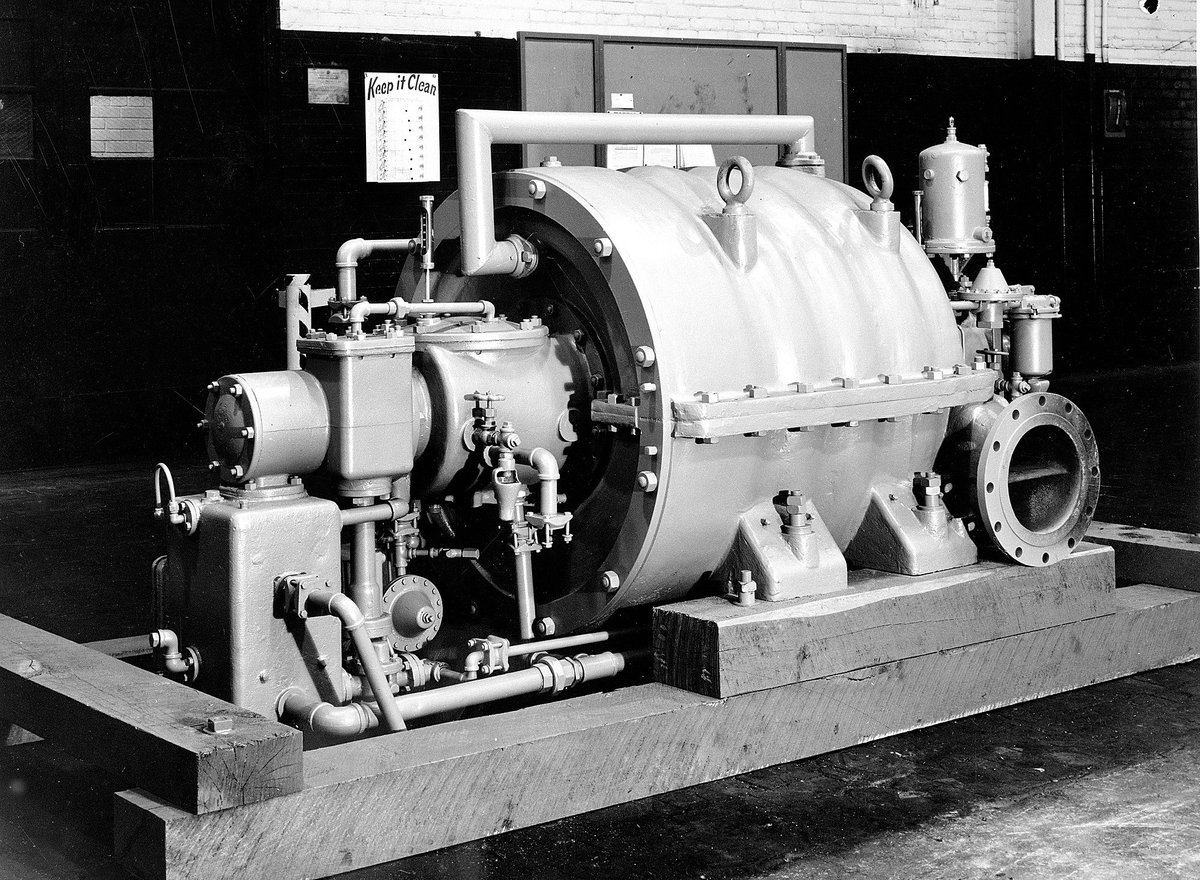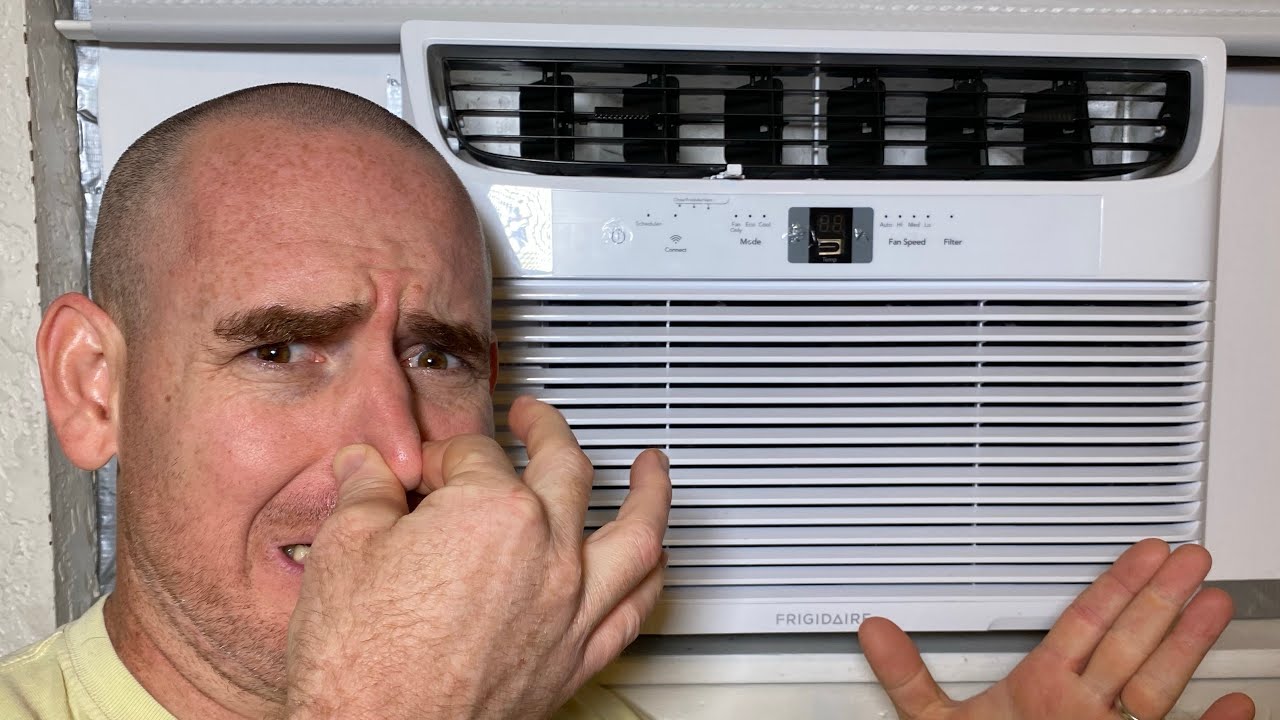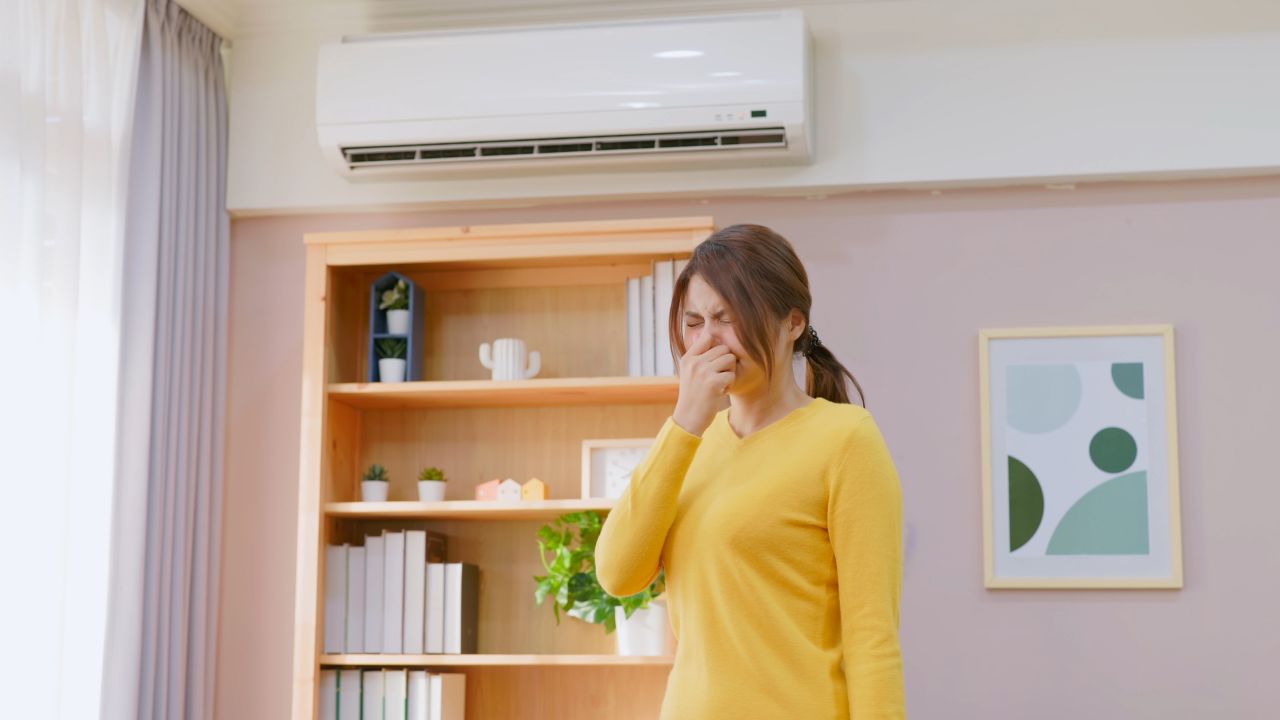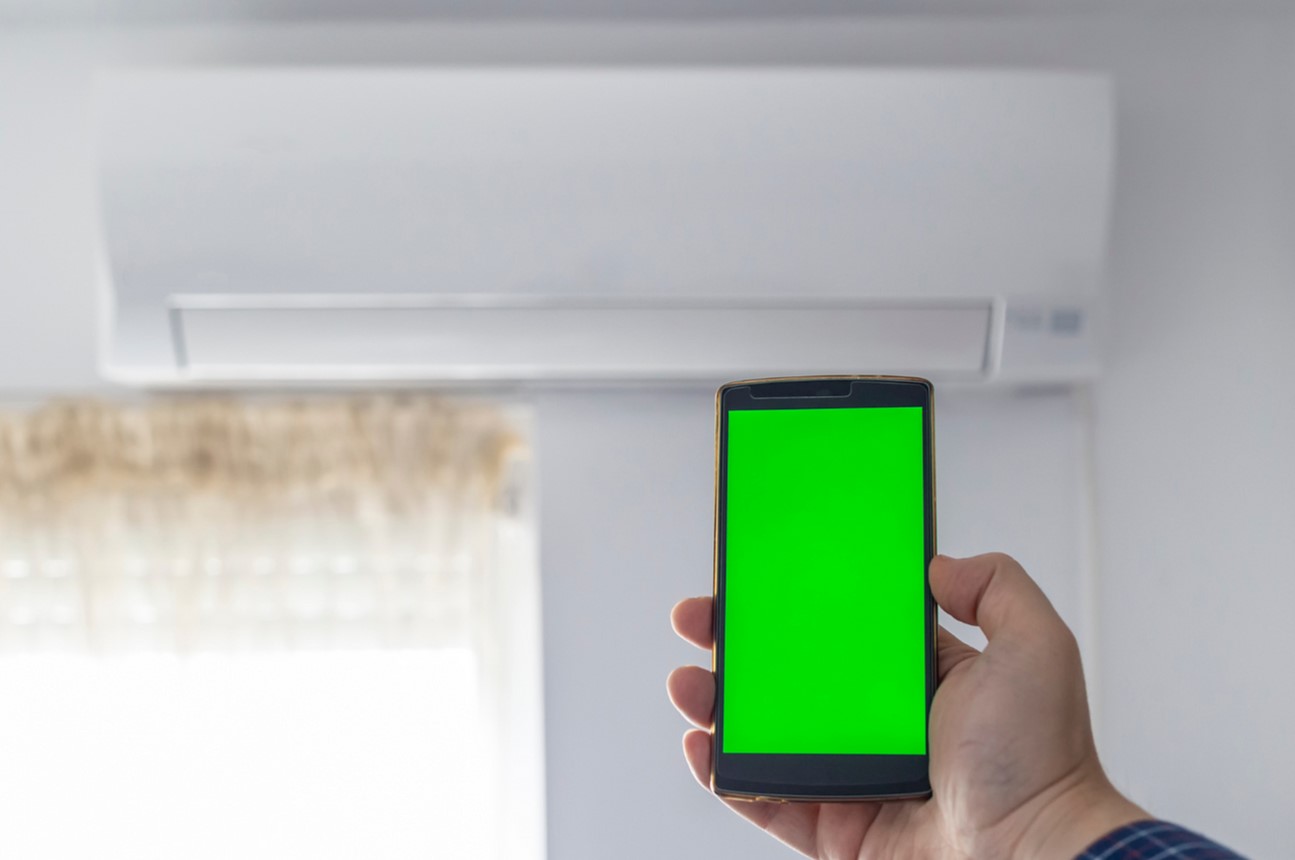Home>Home Maintenance>When To Turn On The Air Conditioner
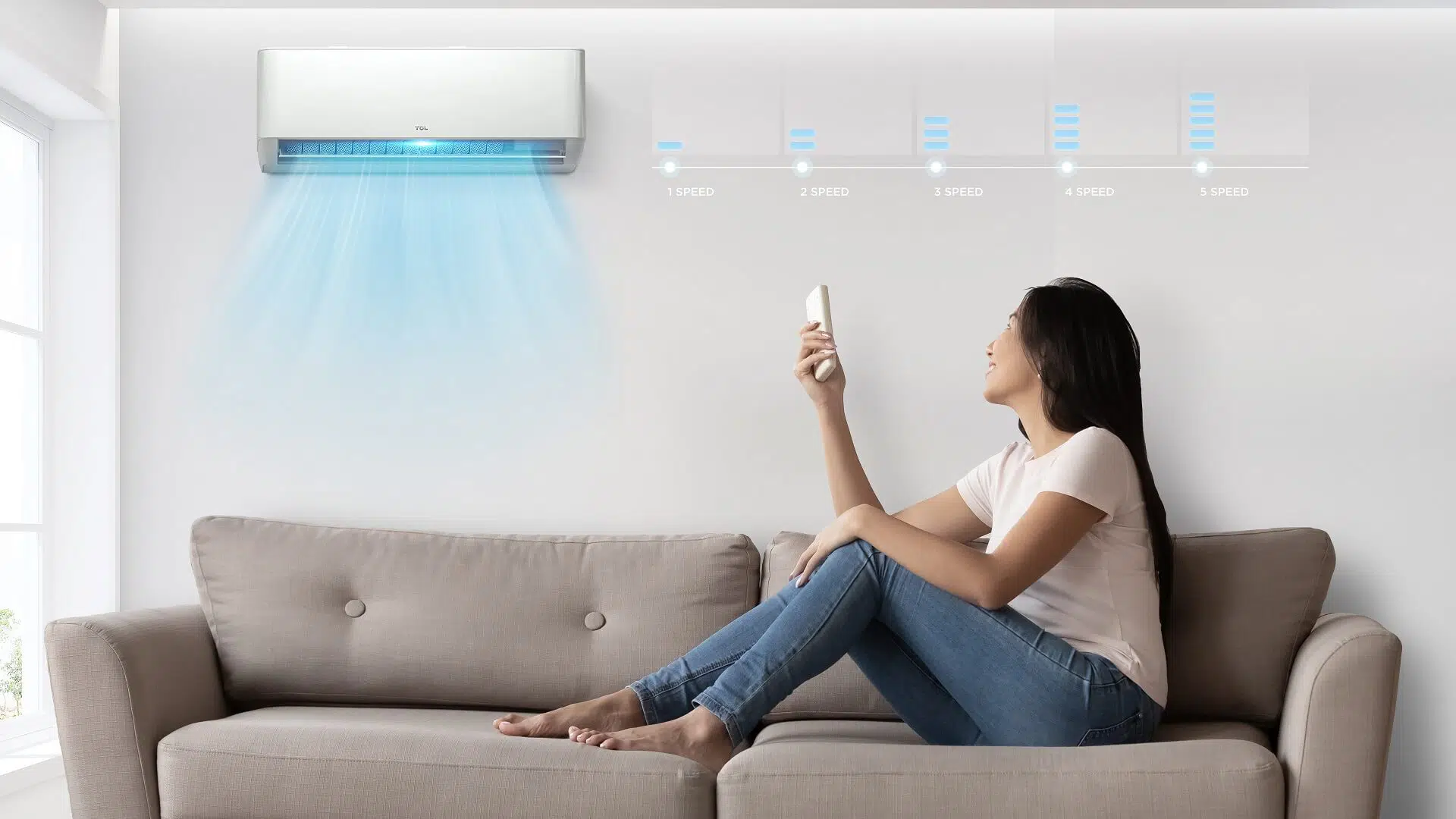

Home Maintenance
When To Turn On The Air Conditioner
Modified: March 7, 2024
Learn when to turn on your air conditioner for optimal home maintenance. Stay cool and comfortable with our expert advice and tips.
(Many of the links in this article redirect to a specific reviewed product. Your purchase of these products through affiliate links helps to generate commission for Storables.com, at no extra cost. Learn more)
Introduction
Welcome to the world of home maintenance! One aspect of maintaining a comfortable living space is knowing when to turn on the air conditioner. As temperatures rise and summer approaches, it’s important to find the optimal balance between comfort and energy efficiency. In this article, we will explore the various factors to consider when deciding when to crank up the AC, including ideal temperature, outdoor temperature, humidity levels, energy efficiency, health and comfort factors, nighttime usage, and tips for optimal AC usage.
Knowing when to turn on the air conditioner can make a significant difference in your overall comfort and well-being, as well as your energy bills. Let’s dive into the details and gain a better understanding of the factors that play a crucial role in determining the perfect time to embrace the cool air.
Key Takeaways:
- Keep your home comfortable and energy-efficient by considering factors like ideal temperature, outdoor conditions, and health when deciding to turn on the air conditioner.
- Optimize AC usage with tips like regular maintenance, using fans, managing sunlight, and considering zone cooling to maximize efficiency and minimize energy costs.
Read more: Air Conditioner Stinks When I Turn It On
Factors to Consider
When it comes to deciding when to turn on the air conditioner, there are several important factors to take into account. These factors can vary depending on your geographical location, climate, and personal preferences. Here are the key considerations to keep in mind:
- Outdoor Temperature: The outdoor temperature is a significant factor in determining when to turn on the AC. If the temperature outside is significantly higher than the desired indoor temperature, it may be time to start cooling your home.
- Ideal Indoor Temperature: Consider what temperature is comfortable for you and your family. It’s important to find a balance between staying cool and energy efficiency. The recommended ideal indoor temperature during summer months is typically between 72 to 78 degrees Fahrenheit (22 to 25 degrees Celsius).
- Humidity Levels: High humidity can make a space feel hotter and more uncomfortable. If your home feels muggy and sticky, even with moderate temperatures, it may be a good time to turn on the AC to reduce humidity levels and enhance comfort.
- Energy Efficiency: Balancing comfort with energy efficiency is crucial. It’s essential to use your AC efficiently to avoid unnecessary energy consumption and high utility bills. Assess the energy efficiency of your AC unit and consider using programmable thermostats or smart home technology to optimize energy usage.
- Health and Comfort Factors: Factors such as allergies, respiratory conditions, or the presence of young children or elderly individuals may influence when you choose to turn on the AC. Keeping the indoor environment cool and comfortable can contribute to overall well-being.
By considering these factors, you can make an informed decision about when to turn on the air conditioner and create a comfortable living environment while also minimizing energy consumption.
Ideal Temperature for Turning On the AC
Determining the ideal temperature for turning on the air conditioner is a personal preference, but there are some general guidelines to consider. The goal is to find a temperature that keeps you comfortable without overtaxing your AC unit or driving up your energy bills.
The recommended temperature range for indoor comfort during the summer months is typically between 72 to 78 degrees Fahrenheit (22 to 25 degrees Celsius). However, you can adjust this range based on your preference and the specific climate you reside in. Some individuals may prefer a slightly cooler environment, while others may find the higher end of the range more comfortable.
It’s important to keep in mind that setting the thermostat too low may not provide significant additional cooling but can lead to increased energy consumption. Each degree you lower your thermostat below the ideal range can potentially increase your energy usage by 3 to 4%. Finding the sweet spot where you are comfortable while keeping energy efficiency in mind is crucial.
Additionally, consider the time of day when determining the ideal temperature for turning on the AC. During daytime hours, when outdoor temperatures are typically at their highest, you may need to set a slightly lower temperature to attain the desired indoor comfort. However, during nighttime hours, when outdoor temperatures tend to cool down, you can raise the thermostat to reduce energy consumption and take advantage of natural ventilation.
Remember, everyone’s comfort levels differ, so it’s essential to find the temperature that suits you best. Experiment with different settings and pay attention to how your body reacts to different temperatures. Over time, you’ll discover the ideal temperature range that keeps you comfortable without compromising energy efficiency.
Outdoor Temperature Considerations
The outdoor temperature plays a significant role in determining when to turn on the air conditioner. When outdoor temperatures become uncomfortably high, it’s often a clear sign that it’s time to start cooling your home. However, there are a few additional considerations to keep in mind:
1. Heat Index: It’s important to consider the heat index, which takes into account both temperature and humidity levels. High humidity can make the air feel hotter and more humid, affecting your comfort level even if the temperature is relatively moderate. If the heat index is high, you may want to turn on the AC earlier to combat the muggy conditions.
2. Time of Day: Outdoor temperatures tend to peak during the midday hours when the sun is at its strongest. This is the time when you may most likely feel the need to turn on the AC to maintain a comfortable indoor environment. As the day progresses and the sun begins to set, outdoor temperatures usually start to cool down, creating an opportunity to rely on natural ventilation instead of relying solely on the AC.
3. Regional Climate: The climate of your region also plays a role in determining when to turn on the air conditioner. If you live in a hot and arid climate, you may need to turn on the AC earlier and keep it running for longer periods. Conversely, if you reside in a cooler region, you may have more flexibility in deciding when to utilize your AC.
4. Local Weather Forecasts: Keep an eye on local weather forecasts. They can provide valuable information on expected temperatures and heat waves in your area. By monitoring the forecast, you can plan ahead and adjust your AC usage accordingly.
Remember that your comfort and well-being should always be the priority when deciding to turn on the AC. If you find the outdoor temperature too hot and it affects your quality of life, it’s a good indication that it’s time to embrace the cooling benefits of your air conditioner.
Humidity Levels and the AC
Humidity levels can greatly impact your comfort level, especially during the hot and humid summer months. When considering when to turn on the air conditioner, it’s important to take humidity into account as well. Here’s why:
1. Comfort: High humidity can make the air feel sticky and muggy, leading to discomfort and difficulty in cooling down. Air conditioners not only cool the air but also help in reducing and controlling humidity levels. As the AC unit cools the air, it removes moisture from the air, resulting in a more comfortable indoor environment.
2. Mold and Mildew Prevention: Excess humidity can promote the growth of mold and mildew, which can have negative effects on your health and damage your home. Turning on the AC helps reduce humidity levels, lowering the risk of mold and mildew growth and maintaining a healthier indoor environment.
3. Indoor Air Quality: High humidity can also contribute to poor indoor air quality, as it can create a breeding ground for dust mites, allergens, and other pollutants. By using the AC to control humidity, you can significantly improve the air quality in your home, enhancing the overall comfort and health of occupants.
4. Energy Consumption: While the air conditioner helps control humidity, it does consume energy. It’s important to strike a balance between using the AC to reduce humidity and minimizing energy consumption. Consider using the AC in conjunction with other methods such as natural ventilation and dehumidifiers to manage humidity levels without over-relying on the AC alone.
To optimize humidity control with your AC, set the unit to “Auto” mode or use a programmable thermostat that adjusts humidity levels automatically. This allows the AC to cycle on and off as needed to maintain a comfortable and balanced humidity level in your home.
By taking humidity levels into account when deciding when to turn on the air conditioner, you can create a more pleasant and healthier living environment for yourself and your family.
Turn on the air conditioner when the indoor temperature is consistently higher than 78°F to maintain a comfortable and healthy living environment.
Energy Efficiency and Cost Considerations
When it comes to turning on the air conditioner, energy efficiency and cost considerations play a significant role. Here are some important factors to keep in mind:
1. Seasonal Energy Efficiency Ratio (SEER): The SEER rating measures the energy efficiency of an air conditioner. Higher SEER ratings indicate better efficiency. If your air conditioner is outdated and has a low SEER rating, it may be worth considering upgrading to a more energy-efficient model. Newer models often have advanced technologies that can help save energy and reduce your overall cooling costs.
2. Energy Consumption: It’s important to be mindful of your air conditioner’s energy consumption. The longer you run your AC and the lower you set the temperature, the more energy it will consume. Finding the balance between comfort and energy efficiency is crucial. Consider raising the thermostat setting a few degrees or utilizing programmable thermostats to optimize energy usage. Additionally, ensure that your AC unit is well-maintained and its filters are clean, as this can improve its overall efficiency.
3. Time of Day Pricing: Some utility companies offer time-of-day pricing plans, where electricity rates may be higher during peak hours. If you have this type of plan, consider adjusting your AC usage to off-peak hours, such as overnight, when electricity rates are lower. This can help reduce your overall cooling costs.
4. Insulation and Home Sealing: Proper insulation and home sealing can make a substantial difference in the energy efficiency of your home. Ensure that your home is well-insulated and sealed to prevent cool air from escaping and external heat from entering. This will help your air conditioner operate more efficiently and reduce cooling costs.
5. Shade and Sunlight: Consider the natural shading and sunlight that your home receives. Strategic use of shades, curtains, and blinds can prevent excessive sunlight from heating up your home, reducing the workload on your AC unit and ultimately saving energy.
By being mindful of energy efficiency and cost considerations, you can make informed decisions about when to turn on the air conditioner and ensure that your cooling needs are met while minimizing energy consumption and cost.
Health and Comfort Factors
When deciding when to turn on the air conditioner, there are health and comfort factors to consider. Here are some important considerations:
1. Allergies and Respiratory Conditions: If you or your family members suffer from allergies or respiratory conditions, such as asthma, turning on the air conditioner can provide relief. The AC helps filter and circulate the air, removing allergens, pollutants, and irritants that can trigger symptoms. Keeping your indoor environment cool and clean can promote better respiratory health and overall well-being.
2. Heat-Related Illness Prevention: In hot and humid weather, prolonged exposure to high temperatures can lead to heat-related illnesses such as heat exhaustion or heatstroke. Turning on the air conditioner can help maintain a comfortable and safe indoor temperature, reducing the risk of these conditions. It’s particularly important for vulnerable individuals, such as the elderly and young children, to have access to a cool environment.
3. Sleep Quality: Quality sleep is essential for overall health and well-being. During summer nights, when temperatures can be uncomfortably high, having a cool and comfortable environment can greatly improve sleep quality. Turning on the air conditioner can help create the optimal conditions for restful sleep and ensure you wake up feeling refreshed.
4. Psychological Comfort: High temperatures can impact your mood, productivity, and overall mental well-being. Feeling constantly sweaty and uncomfortable can make you irritable and reduce your ability to focus. By turning on the air conditioner, you can create a more pleasant and psychologically comfortable environment, enhancing your overall quality of life.
5. Noise Reduction: Air conditioners not only cool the air but also provide a white noise effect that can help mask disruptive outdoor noises. This can be particularly beneficial if you live in a noisy neighborhood or if you have trouble sleeping in absolute silence.
By considering these health and comfort factors, you can make informed decisions about when to turn on the air conditioner to create a more comfortable, healthy, and pleasant living environment for you and your family.
Nighttime Usage of the AC
When deciding whether to turn on the air conditioner at night, there are several factors to consider. Here’s what you need to know about nighttime usage of the AC:
1. Temperature Drop: During the nighttime, outdoor temperatures tend to drop, creating a cooler environment. Take advantage of this natural cooling by opening windows and allowing fresh air to circulate into your home. This can help lower the indoor temperature and reduce the need for the air conditioner.
2. Natural Ventilation: If the outdoor temperature is comfortable and the air quality is good, consider relying on natural ventilation. Open windows strategically to create a cross breeze and allow cool air to flow through your home. Combine this with the use of ceiling or portable fans to further enhance airflow and provide additional cooling.
3. Personal Comfort: Personal comfort and sleep quality are important considerations. If you find it difficult to sleep in higher temperatures or your bedroom tends to retain heat, it may be beneficial to use the air conditioner at night, even if the outdoor temperature is relatively cooler. Creating a cool and comfortable sleeping environment can promote better sleep and overall well-being.
4. Noise Considerations: Keep in mind the noise levels of your air conditioning unit. If it produces excessive noise that disturbs your sleep or the peace and quiet of your household, you may choose to turn it off at night and use alternative cooling methods such as fans or window ventilation.
5. Energy Savings: Using the air conditioner during nighttime hours can potentially reduce your energy consumption and save on utility bills. As outdoor temperatures naturally cool down, the AC unit may run less frequently, resulting in lower overall energy usage and cost. However, it’s important to strike a balance between energy savings and personal comfort to ensure a good night’s sleep.
Ultimately, the decision to use the air conditioner at night depends on your personal preferences, the comfort of your sleeping environment, and the specific climate you live in. Consider experimenting with different approaches and find what works best for you and your household.
Tips for Optimal AC Usage
To ensure optimal usage of your air conditioner and maximize its efficiency, here are some helpful tips:
1. Maintain Regular AC Maintenance: Schedule regular maintenance for your air conditioner to keep it running smoothly. This includes cleaning or replacing air filters, checking for any leaks or blockages, and ensuring optimal refrigerant levels. Regular maintenance helps improve energy efficiency and extends the lifespan of your AC unit.
2. Use a Programmable Thermostat: Invest in a programmable thermostat or a smart thermostat that allows you to schedule temperature changes throughout the day. This way, you can set higher temperatures when you’re away from home and lower temperatures during your usual occupancy hours. This helps save energy by reducing the time the AC runs unnecessarily.
3. Utilize Fans and Ventilation: Use ceiling fans or portable fans to enhance air circulation. Fans create a wind-chill effect, making a room feel cooler without actually lowering the temperature. They can also help distribute cool air more efficiently, reducing the reliance on the AC. Additionally, make use of natural ventilation by opening windows strategically to take advantage of cooler outdoor air.
4. Maintain Optimal Insulation: Proper insulation helps keep cool air inside your home and prevents hot air from entering. Ensure your home is well-insulated, including doors, windows, and walls. Proper insulation can significantly reduce the workload on your air conditioner, improving energy efficiency and cooling effectiveness.
5. Manage Sunlight and Shade: Use curtains, blinds, or solar window films to block out direct sunlight during the hottest parts of the day. This reduces the heat gain in your home, allowing the air conditioner to operate more efficiently. Use light-colored curtains or blinds to reflect sunlight and keep your home cooler.
6. Avoid Heat-Generating Appliances: Appliances such as ovens, dryers, and stoves generate heat, which can increase the overall temperature in your home. Try to limit the use of such appliances, especially during the hottest parts of the day, or use them in conjunction with proper ventilation to minimize the impact on indoor temperatures.
7. Consider Zone Cooling: If your home allows for it, consider zone cooling. This involves dividing your home into different zones and cooling only the areas that are being used. By directing cool air to specific zones, you can save energy and optimize comfort in the areas that are occupied.
By following these tips, you can maximize the efficiency of your air conditioner, reduce energy consumption, and create a comfortable living environment while keeping your energy costs in check.
Read more: How To Turn On The Air Conditioner
Conclusion
Deciding when to turn on the air conditioner requires careful consideration of several factors, including ideal temperature, outdoor temperature, humidity levels, energy efficiency, health and comfort factors, nighttime usage, and optimal usage tips. By taking all of these factors into account, you can create a comfortable and efficient cooling strategy for your home.
Understanding the ideal temperature for turning on the AC allows you to strike a balance between comfort and energy efficiency. Monitoring outdoor temperature and considering the heat index helps determine when the AC is necessary to combat high temperatures. Managing humidity levels not only enhances comfort but also improves indoor air quality and prevents mold and mildew growth. Energy efficiency and cost considerations are essential to minimize energy consumption and lower utility bills.
Considering health and comfort factors is crucial. Allergies, respiratory conditions, and heat-related illnesses can be managed by utilizing the air conditioner to create a healthier and more comfortable indoor environment. Nighttime usage of the AC can be adjusted based on personal preferences, outdoor temperature, and noise considerations to promote quality sleep and energy savings.
Implementing tips for optimal AC usage, such as regular maintenance, programmable thermostats, utilizing fans and ventilation, maintaining insulation, managing sunlight and shade, and considering zone cooling, can maximize the efficiency of your air conditioner and enhance energy savings.
At the end of the day, finding the right time to turn on the air conditioner is a balance between comfort, energy efficiency, and personal preferences. By considering all the factors discussed in this article and implementing the recommended tips, you can create a cool and comfortable living space while minimizing energy consumption and costs.
Remember to regularly assess and adjust your cooling strategy as needed, and always prioritize your well-being and comfort when making decisions about air conditioner usage.
Frequently Asked Questions about When To Turn On The Air Conditioner
Was this page helpful?
At Storables.com, we guarantee accurate and reliable information. Our content, validated by Expert Board Contributors, is crafted following stringent Editorial Policies. We're committed to providing you with well-researched, expert-backed insights for all your informational needs.
